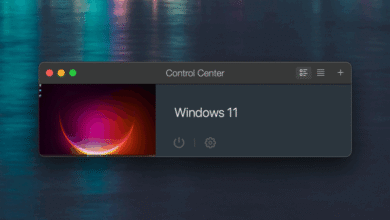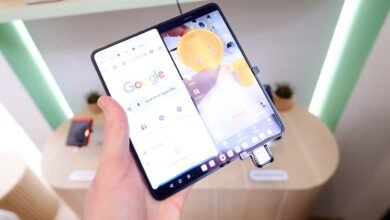Japan Says ‘No’ to Pixel 7! Pixel 8 and 9 Series Might Be the Next Targets!

The Pixel 7 Faces Ban in Japan: What It Means for Future Pixel Devices
The tech world is buzzing with news as the latest development involving Google’s Pixel 7 smartphone has made headlines. The decision to ban the Pixel 7 in Japan due to compliance issues has raised concerns not only for current users but also for potential future releases such as the Pixel 8 and Pixel 9 series. This blog post delves into the reason behind this ban, its implications, and what it means for Google’s future in the Japanese market.
Understanding the Ban: What Happened?
The recent news indicates that the Pixel 7 has been officially banned in Japan. This action stems from the smartphone’s failure to comply with the necessary telecommunications laws enforced by Japan’s Ministry of Internal Affairs and Communications (MIC). The specifics of the ban hint at issues concerning cellular technology standards that the device failed to meet, which is crucial for operation in Japan’s strict regulatory environment.
Such regulations are focused on ensuring that all devices adhere to safety and compatibility standards, mainly designed to protect consumers and maintain the integrity of the telecommunications network. As a result, the Japanese government has decided to prohibit the sale and distribution of the Pixel 7 within its borders until compliance is achieved.
The Implications for Google
This ban has significant ramifications for Google, particularly for its ambitions in the Asian market. Japan is one of the largest technology markets in the world, and a strong presence there is vital for a brand seeking to establish itself globally. The Pixel line was expected to solidify its reputation in Japan, especially with the robust features and capabilities the Pixel 7 promised, including advanced photography, AI-driven functionalities, and seamless integration into the Google ecosystem.
Challenges Ahead
Google now faces mounting challenges. First and foremost, the company must determine how to address the compliance issues that led to the ban. This could involve numerous steps, such as redesigning aspects of the device, securing necessary certifications, and demonstrating adherence to local regulations.
Furthermore, any delay in resolving these issues may jeopardize the market momentum Google had hoped to build in Japan. The Pixel 7 was intended to compete directly with Apple and other major players in the smartphone industry. A setback like this could hinder Google’s efforts and reduce consumer interest, particularly in a market known for its high standards and customer expectations.
What About Future Pixel Devices?
The implications of this ban could extend beyond just the Pixel 7. Speculations are rising that subsequent models, such as the Pixel 8 and Pixel 9 series, might also face similar challenges if Google does not rectify the compliance issues promptly. If the company cannot assure regulatory bodies of its commitment to meeting local standards, future devices may be at risk of being banned as well.
This situation raises questions about how Google will adapt its strategy in Japan moving forward. The company might need to invest more resources into regulatory compliance and build a dedicated team to navigate the competitive landscape and the bureaucratic requirements of the Japanese telecommunications market.
The Broader Impact on Consumers
For consumers, the Pixel 7 ban poses an immediate concern. Current and potential users may find it difficult to purchase the device through official channels, leading to frustration among those excited about its features. Moreover, because the ban stems from compliance issues, early adopters could express concerns about future updates and support, which are crucial for long-term satisfaction with a smartphone.
Those who already possess a Pixel 7 may also wonder how this ban will affect warranty claims or customer service. If the device is banned, would that imply reduced support options for existing users? These are legitimate questions that Google needs to address to maintain consumer trust and satisfaction.
Comparing Pixel 7 to Other Devices
In light of these developments, many are comparing the Pixel 7 to other popular smartphones on the market. Apple’s iPhone and Samsung Galaxy series have gained a strong foothold in Japan, and the ban on Pixel 7 raises questions about how Google can differentiate itself while ensuring compliance with local laws.
Apple and Samsung have established robust infrastructures to manage regulations across various countries, including Japan. Their devices regularly undergo extensive testing and certification processes to ensure they adhere to local laws. If Google wishes to compete effectively, it must bolster its compliance processes and perhaps learn from these industry giants.
Google’s Response: What to Expect
In response to the ban, Google is likely to issue a statement addressing the situation. This communication will be crucial in reassuring consumers, investors, and stakeholders that the company is committed to remedying the compliance issues and maintaining a presence in the Japanese market.
Furthermore, Google should outline any planned steps to realign its product development processes, ensuring that upcoming devices meet or exceed Japan’s regulatory requirements. Transparency in this situation will be essential for restoring trust and confidence in the Pixel brand among Japanese consumers.
Conclusion: The Future of Pixel in Japan
The ban on the Pixel 7 in Japan serves as a crucial reminder of the importance of regulatory compliance in the tech industry. It not only highlights the challenges that global brands face in navigating diverse markets but also underscores the expectations consumers have for product reliability and safety.
As Google navigates this setback, its ability to respond effectively will determine its success in reinstating the Pixel brand in Japan. For future Pixel models, the company must take proactive measures to ensure that compliance is at the forefront of their product development, ultimately paving the way for a robust presence in one of the world’s most competitive technology markets. Only time will tell how Google will adapt to these challenges and what they mean for the long-term future of the Pixel family in Japan.
Summary
- The Pixel 7 has been banned in Japan due to non-compliance with local telecommunications regulations.
- This ban may impact Google’s ability to establish a strong foothold in the Japanese market.
- Future Pixel devices, including the 8 and 9 series, could face challenges if compliance issues are not resolved.
- The ban raises concerns for consumers regarding support and warranty services for the Pixel 7.
- Google’s response is crucial for reassuring stakeholders and regaining consumer trust.
- The situation emphasizes the importance of regulatory compliance for tech companies operating in diverse markets.





